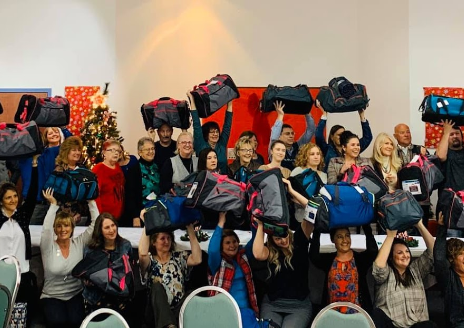Welcome to the MVP website. Here you will find general information about the program, who is eligible, services offered, who to contact, and how you can help.
Click the tabs on the top of this page to reach a specific content area of interest.
What is the MVP Program?
The McKinney-Vento Program is a school district program working to remove obstacles to education for students facing housing insecurity. The program goal is to provide access to consistent, uninterrupted education so that students can succeed in school. We do this by offering a variety of supports and services* to students and families.
*A list of these supports and services can be found under the “Services” tab in the upper portion of this page.
Who is eligible for MVP supports and services?
Students may be eligible for services if they are in one of the following housing situations:
- Doubled-up with friends or family due to lack of affordable housing
- Couch-surfing
- Living at an emergency or domestic violence shelter
- Sleeping in a car, tent, camper, public space, or other place not meant for shelter
- Living in “substandard” housing, or housing that poses a health or safety concern (mold, no heat/water/electric, etc.)
- Temporarily living in a hotel due to lack of affordable housing
Students can be with a family unit that is experiencing housing insecurity or they may be on their own. Students in one of the above situations and not in the physical custody of a parent or legal guardian are considered Unaccompanied Youth.
PLEASE SEE THE “FOR YOUTH” tab if you think this may apply to you.
Students must be enrolled in a KPBSD school to receive support from the KPBSD MV Program. KBPSD schools include the Connections homeschool program.
The McKInney-Vento Program falls under the McKinney-Vento Act, most recently reauthorized under ESSA. This Act states that students experiencing housing insecurity – defined as those without fixed, regular, and adequate nighttime residence – have certain educational rights and protections. These include remaining at the school they attended before they lost permanent housing, or the “school of origin” (for the remainder of the school year), receiving transportation assistance to and from that school, enrolling in school immediately even without documentation normally required, receiving the same special programs and services offered to students with similar needs, and receiving assistance from a school district Liaison to help meet additional needs.







